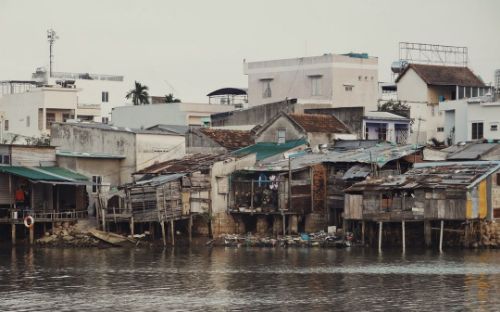Author

Irsyadillah
irsyadillah@usk.ac.id
Secretary at Pusat Riset Ilmu Sosial Budaya (Research Center for Social and Cultural Studies), Universitas Syiah Kuala, Banda Aceh, Indonesia
We’ve been here before, in 1997 and 2008, but the coronavirus financial crisis is a lot bigger and sooner than anyone could have predicted. Previous global crises were free-market-capitalist-made catastrophe, this one is an act of God, with, of course, man-made mistakes along the way.
The public health crisis is a matter of life and death, so that the containment measures should be put in place very quickly to tackle the pandemic. The rescue package such as to build new hospitals, buy medical equipment and medicine should not be delayed.
However, the coronavirus outbreak also poses a very grave threat to the economy. Thus, help from ‘the visible hand’ cannot come soon enough.
To begin with, having Sri Mulyani, a competent and popular minister in charge is an advantage. In particular, she is well-accepted by the international financial community. However, it seems this crisis is not anticipated in any way by the government. There is no contingency plan in place.
At present, the government is reallocating funds from the existing budget to cope with Covid-19 pandemic. As situation is potentially heading towards a critical state, our government cannot buy more time to put the economy on life support.
Governments in advanced economies, such as the US, UK and EU have unveiled the most impressive rescue packages that have never been seen before to protect their population from the economic carnage.
Surprisingly, both current administration in the US and UK come from conservative background, which previously opposed bailouts, budget deficits and excessive borrowings. They were comfortable operating an austerity economies for years. However, benefiting from lower interest rate, they are now borrowing unlimited amount of cash to ease the economy that have been decimated by the coronavirus financial freefall.
For example, although there is some trepidation among the conservatives (given potential budgets deficit of more than 10 percent of GDP), the UK government has declared to significantly increase welfare budgets, boost housing benefits, pay wages for companies to keep workers on payroll, and delay businesses’ Value Added Tax (VAT) bills.
In the US, although the negotiation between the Republic and Democratic parties is still taking place, President Donald Trump has indicated that they are preparing to send cash directly to citizen pockets, cover wages of millions of employees in private sectors, boost unemployment insurance payments, increase guarantee employees paid sick leave, and bailout companies within industries which are affected most by the coronavirus financial crisis.
Given the seriousness of the economic fallout, it seems there is no other option for the political right except against their preaching ideology to implement left wing economic policies such as ‘universal income’ and bailouts.
In Indonesia, although the government has not forced full lockdown, but as people are encouraged to practice social distancing and self-isolation by avoiding public space, they reduce travels for leisure, business, social and other activities.
Consequently, flight seats and hotel rooms would be empty. Cafe and restaurant businesses are also deeply affected. In a similar fashion, supermarkets, malls, shops and traditional markets do not operate as usual. The fact that these industries employ a large number of people across the nation.
Furthermore, in the near future, it is potential that factories are ordered to shut down to avoid the spread of the coronavirus among workers. Hence, millions of people would lose their sources of incomes, especially those workers in the informal economy, where paid leave is not covered.
Given the economic impact would be severe on community, it is vital that people are not left on their own to bear the consequences of the sudden economic downturn. People who are facing the immediate collapse of their livelihoods should be supported by the government.
First and foremost, we feel hugely reassured when the government announce economic response to the most economically vulnerable in the society.
Ministry of Finance plan to disburse immediately Rp 38 trillion for Social Safety Net Programs to ease the burden of 70 million underprivileged citizens from economic threat of Covid-19 outbreak. The government would also release very shortly funds through the Family Hope Program or the Staple Food Card to help other 10 million citizens.
However, it can be argued that if the health crisis is going to turn the situation into a fully-blown economic crisis, alongside that strengthen the safety net, it is crucial that the government support the economy as a whole. The best thing expected from all of these is that economy can be sustained and everyone of us can return to normality once the crisis subsides.
Of course, we are not expecting the government to throw a stimulus package fully mimicking those advanced economies. We are not capable to follow suit. However, it is critical that the government be able to formulate economic policies which support those viable businesses.
In particular, the government should commit to help the Small and medium-sized enterprises (SMEs). Their productivity is paramount to be sustained as millions of lives are dependent on them. Local government can do much to support SMEs by taking lead in the protection of their businesses.
Furthermore, one can legitimately argue that the government should think how to support big businesses from going bust or laying off staffs. It is brilliant if some large corporations can access fresh cash from their wealthy shareholders.
However, some other large companies employing hundred thousand of people in certain industries might be in dire need of a bailout. Thus, the potential help from government cannot be closed.
People might argue that the government is again bankrolling big shareholders. But it would become obvious that when matters of life (workers’ lives) the calculus is no different. In the end, citizen would realize that this time the government is bailing out the ordinary citizens.
Nonetheless, the bailout condition must be strictly set. The corporation receiving government cash should use the money to help their workers. The cash should not be used to sustain profit for shareholders, repurchasing its own shares, or hanging on to reserves.
In a nutshell, in order to prevent from a severe economic destruction created by Covid-19 crisis, the role of ‘the visible hand’ in economic policy should be increased, as millions of lives would be saved.
